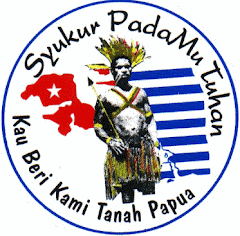
West Papua is not on the front pages of The New York Times most days. In fact,
most people don’t know that it is a territory of Indonesia, or that it is the site of a
deep-seated conflict in which the indigenous community has been seeking inde- pendence from Indonesia since the 1960s. So, perhaps, it is no surprise that most people don’t know about the Reverend Dr. Benny Giay. A native of West Papua,
Benny is working tirelessly to reconcile conflicts in the region that have claimed tens
of thousands of lives and forced many more from their homes. His story is one of faith, courage, and a guiding vision for what he calls “a New Papua.”
Born into a family from the Melanesian Me tribe, Benny was a young child when his parents converted to Christianity. He soon followed in their footsteps to become active in the Evangelical Church. His devotion to his faith, however, made him all the more frustrated as he came to recognize the Church’s failure to address human rights’ violations of its own Papuan constituency.
Determined, Benny decided to dedicate his life to making social justice a reality for
his community. In doing so, he has reconciled his indigenous and Christian roots, reaching a community that treasures its many historic traditions. The results are
new ideas and practices that speak to his fellow Papuans.
Benny began his quest by tackling one of his community’s highest priorities: education. Prior to 1986, students who wanted a seminary education had to leave home and travel far from West Papua, often a difficult and expensive experience. Benny decided to remedy the situation and, despite resistance from the Church, founded West Papua’s first seminary. Ten years later, he was unanimously elected chairman of the Church’s Education Foundation, successfully raising the funds needed to provide wages for the teachers – who had not been paid in years. Because of his leadership, thousands of Papuan students – West Papua’s future leaders – are now receiving a quality education without having to leave their community.
A prolific writer, Benny has also produced numerous books and articles exposing the human rights abuses within his community to the outside world. His latest writings outline how to reach a “New Papua” of reconciliation, nonviolence and peace.
While Benny has succeeded in providing many opportunities for his people, he has not done this without cost. Perhaps not surprisingly, his activism has put his life in great danger. His writings have been banned and he has been trailed at night, frightening
his family that he would not return home. When he travels outside the country, he is harassed as he departs and returns. The Indonesian government even blacklisted a human rights organization he founded with other church and community leaders.
Many members of the group have been terrorized by the military or had their homes destroyed.
But Benny plays down these risks, noting that others have suffered far worse then he. Instead, he persevered, becoming the director of the Papua Peace Commission through which he is trying to create a “zone of peace” in West Papua, within which no acts of violence would be permitted. One of West Papua’s greatest moral and intellectual voices, Benny is recognized as a man who puts his profound faith into practice as
he works for the people he loves.
http://www.tanenbaum.org/benny_giay.htmles.





No comments:
Post a Comment